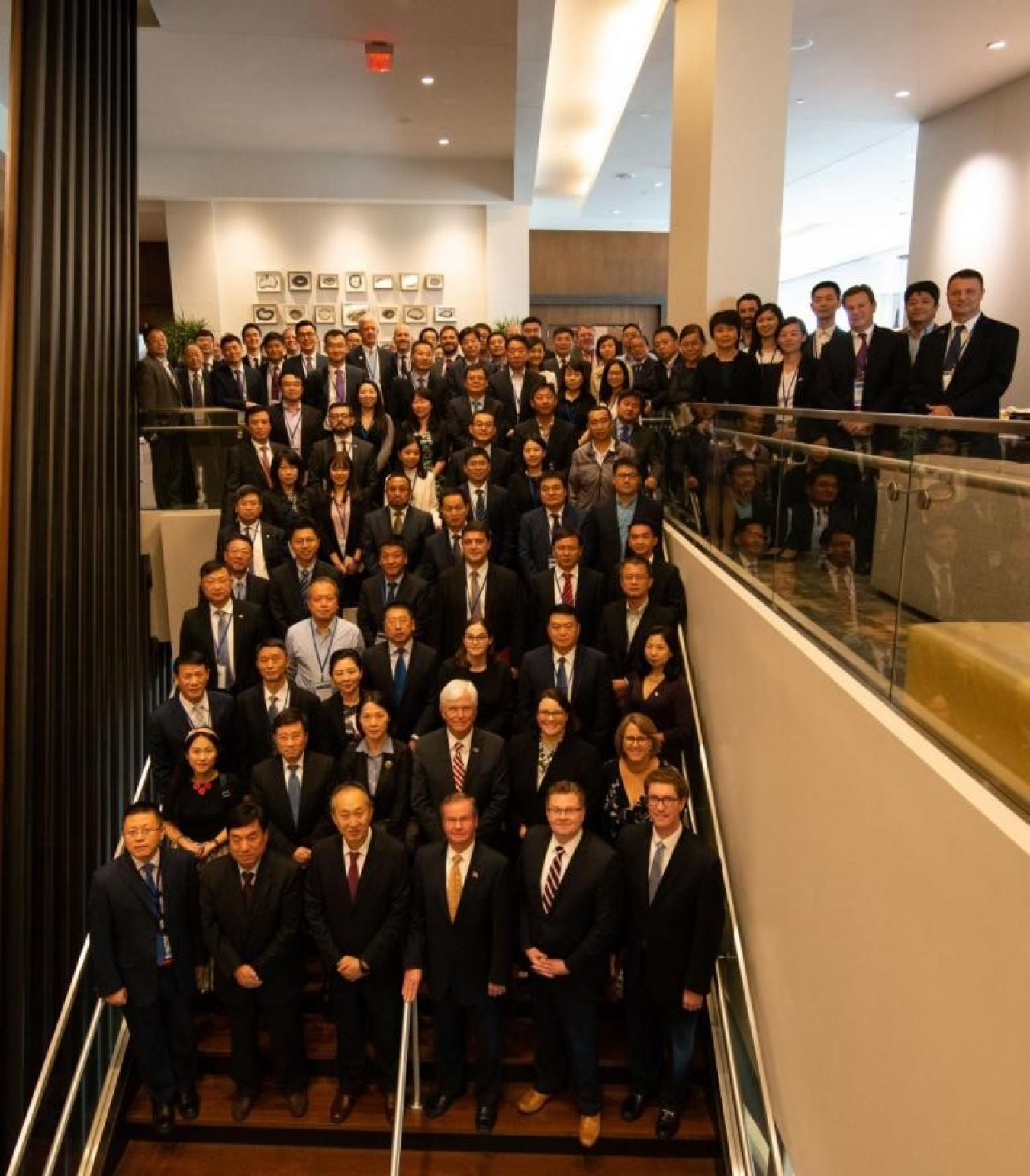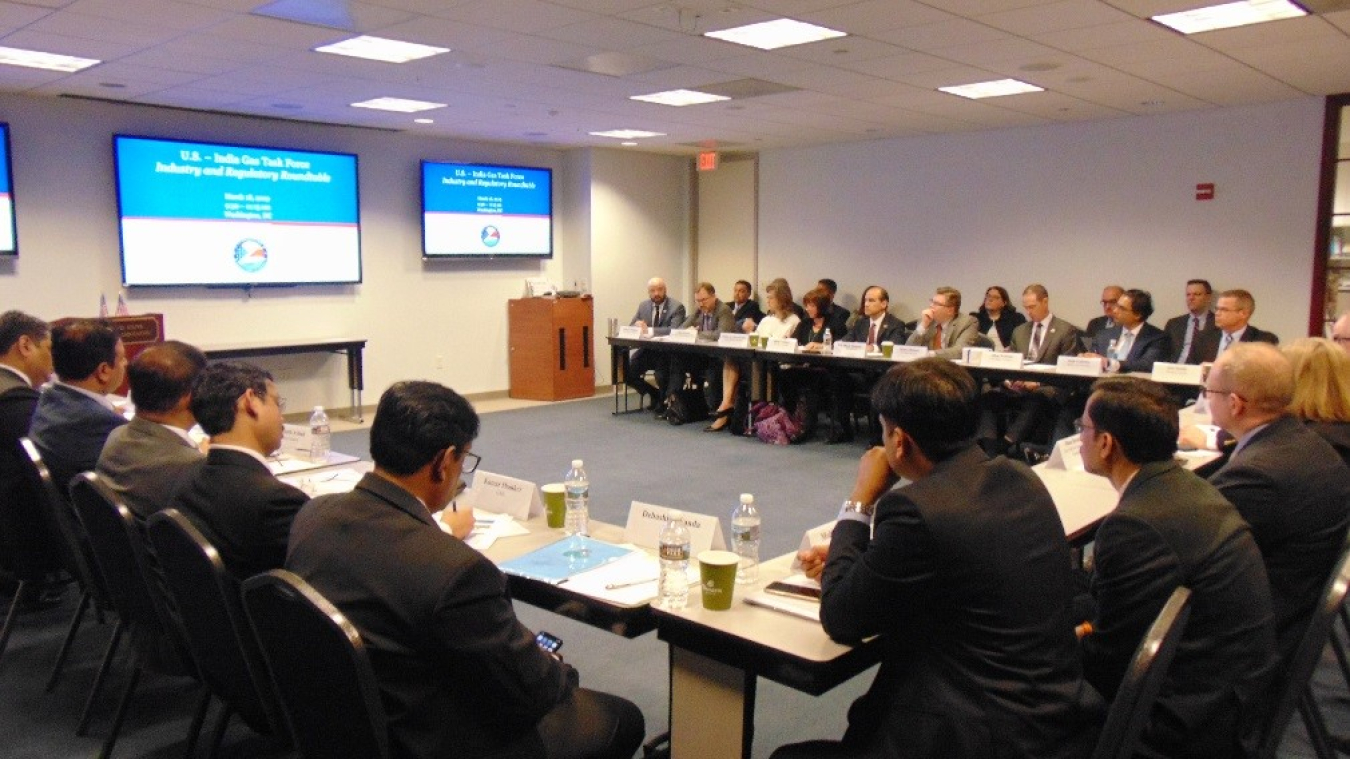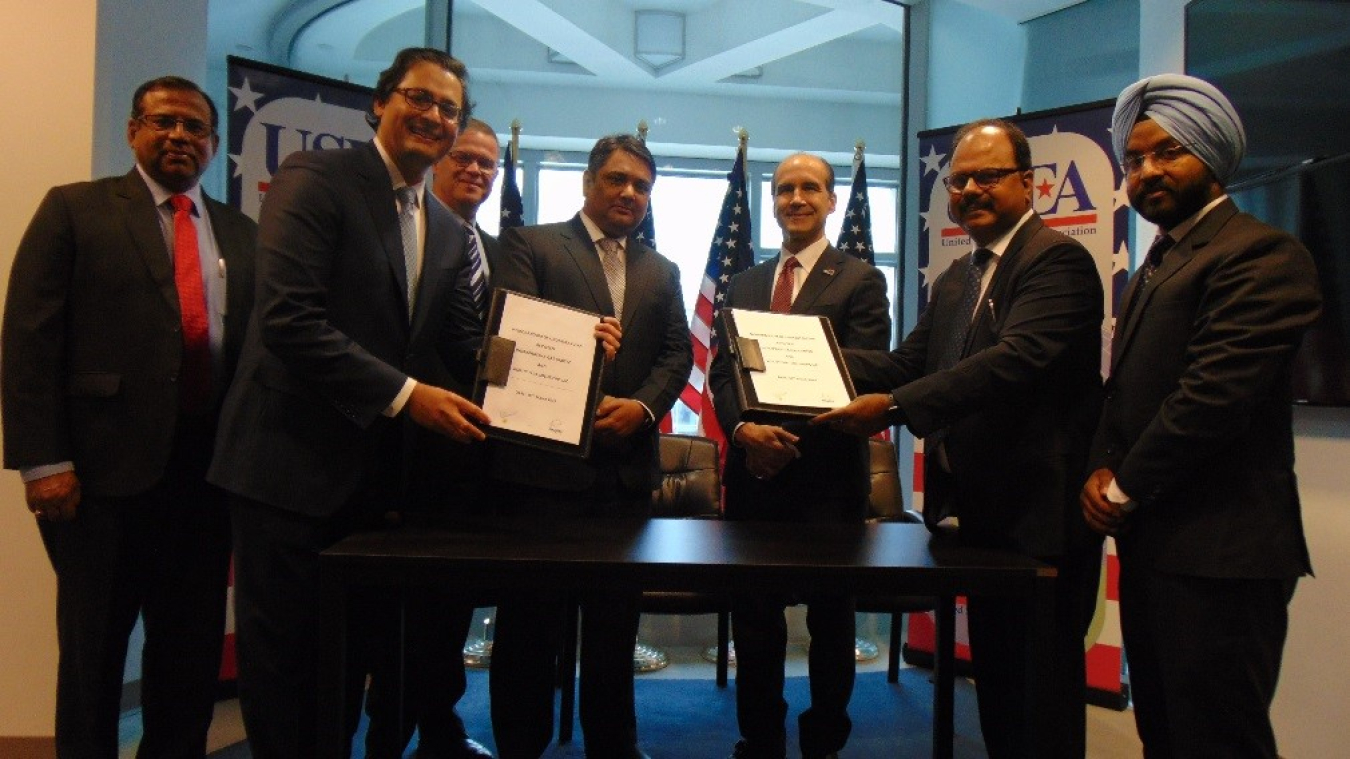International Engagement: Oil & Natural Gas
Hydrocarbons and Geothermal Energy Office
May 5, 2020Forums
The U.S.-China Oil and Gas Industry FORUM (OGIF)
The Office of Fossil Energy and China’s National Energy Administration (NEA) have held the annual U.S.-China Oil and Gas Industry Forum (OGIF) since 1998. The Forum is a public-private partnership involving government and industry representatives from the United States and China. It enables both countries to meet common goals, including the development of secure, reliable, and economic sources of oil and natural gas while facilitating investment in the energy industry. Past OGIF agendas and presentations will be posted at United States Energy Association (USEA). USEA performs forum logistical and technical coordination duties for OGIF for the Office of Fossil Energy.

18th U.S.-China Oil and Gas Industry FORUM (OGIF)
September 18-20, 2018
Houston, Texas


U.S. – India Gas Task Force (GTF)
March 18, 2019
Washington, DC
U.S. – India Gas Task Force (GTF)
The U.S.-India Gas Task Force (GTF) is an industry-focused forum which identifies innovative policy reforms to support India’s ambitions to transition to a natural gas economy, as well as lower market barriers in India for U.S. natural gas and related technologies. The GTF is an initiative under the U.S-India Strategic Energy Partnership (SEP) launched in April 2018 following a June 2017 commitment by President Trump and India’s Prime Minister Modi to expand and elevate U.S-India energy cooperation. The Office of Fossil Energy and India’s Ministry of Petroleum and Natural Gas (MoPNG) are the GTF government leads, and the U.S. Energy Association (USEA) and India’s Gas Authority of India Ltd. (GAIL) serve as the GTF co-secretariats. The GTF has three subcommittees of industry and regulatory experts which identify challenges to and opportunities for natural gas development in India: Markets and Regulation, Gas Grid Strengthening, and Gas Demand Growth.
STUDIES & HANDBOOKS
The Future of Asian LNG 2018 and The Future of Asian LNG, Challenges and Opportunities
The Office of Fossil Energy co-funded these studies with the Energy Policy Research Foundation, Inc. (EPRINC) and the Institute of Energy Economics-Japan (IEEJ).
Assessment of Contract Flexibility and Financial Liquidity for the LNG Market
The Office of Fossil Energy is co-funding this 2020 study with the Energy Policy Research Foundation, Inc. (EPRINC) and the Institute of Energy Economics-Japan (IEEJ).
Study on Optimal Use of Small-Scale Shallow Draft LNG Carriers and FSRUs in the APEC Region (APEC publication number 220-RE-01.4)
The Office of Fossil Energy designed the concept for and was the primary sponsor of this APEC (Asia-Pacific Economic Cooperation) funded study. The other sponsoring APEC economies were Chile, Chinese Taipei, Japan, and Thailand.
Understanding Natural Gas and LNG Options: Handbooks
The Office of Fossil Energy works with DOE's Office of International Affairs, other U.S. government agencies, and private sector stakeholders to provide capacity building expertise on the use of natural gas resources and LNG for global energy security. As part of this effort, DOE prepared the following handbooks.
Understanding Natural Gas & LNG Options: An LNG Handbook (Africa-focused)
This LNG handbook serves a resource for African countries that are developing, or considering developing, natural gas and associated industries. It was prepared by the Office of Fossil Energy and DOE’s Office of International Affairs with assistance from the U.S. Energy Association (USEA) and funding from USAID/Power Africa. The handbook can be found on the Office of International Affairs website by clicking on the title above. DOE’s regulatory role in LNG.
This LNG handbook aims to facilitate a shared understanding between government officials and companies about the technical, commercial, and economic factors that will spur investment in natural gas and natural gas-fired power infrastructure. It intends to inform decision-making and promote a better understanding of the stakeholders' shared aims in developing natural gas and liquefied natural gas (LNG) projects and opening markets for LNG trade.

